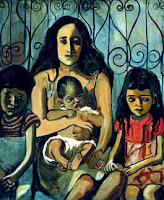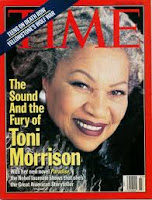American Novelist
1936 -
 When you are an unknown writer or artist, you are free to explore new genres or avenues of thinking without anyone criticizing you. When you are successful, you can become boxed in by the expectations of others and your options to explore new genres becomes limited. One of my favorite mystery writers, Walter Mosley, has tried on occasion to write novels outside of the genre of mysteries and these novels have never been as successful as his Easy Rawlins novels. I once talked with Denver Pyle, a Hollywood character actor for most of his career. He said that his role as Uncle Jessie on the Dukes of Hazard negatively impacted his ability to be cast in any other roles. He was typecast as Uncle Jessie. Sometimes we as creative leaders become trapped by our own success and are unable to reinvent ourselves. Ricky Nelson speaks of this trap in his song, The Garden Party.
When you are an unknown writer or artist, you are free to explore new genres or avenues of thinking without anyone criticizing you. When you are successful, you can become boxed in by the expectations of others and your options to explore new genres becomes limited. One of my favorite mystery writers, Walter Mosley, has tried on occasion to write novels outside of the genre of mysteries and these novels have never been as successful as his Easy Rawlins novels. I once talked with Denver Pyle, a Hollywood character actor for most of his career. He said that his role as Uncle Jessie on the Dukes of Hazard negatively impacted his ability to be cast in any other roles. He was typecast as Uncle Jessie. Sometimes we as creative leaders become trapped by our own success and are unable to reinvent ourselves. Ricky Nelson speaks of this trap in his song, The Garden Party.
 When you are an unknown writer or artist, you are free to explore new genres or avenues of thinking without anyone criticizing you. When you are successful, you can become boxed in by the expectations of others and your options to explore new genres becomes limited. One of my favorite mystery writers, Walter Mosley, has tried on occasion to write novels outside of the genre of mysteries and these novels have never been as successful as his Easy Rawlins novels. I once talked with Denver Pyle, a Hollywood character actor for most of his career. He said that his role as Uncle Jessie on the Dukes of Hazard negatively impacted his ability to be cast in any other roles. He was typecast as Uncle Jessie. Sometimes we as creative leaders become trapped by our own success and are unable to reinvent ourselves. Ricky Nelson speaks of this trap in his song, The Garden Party.
When you are an unknown writer or artist, you are free to explore new genres or avenues of thinking without anyone criticizing you. When you are successful, you can become boxed in by the expectations of others and your options to explore new genres becomes limited. One of my favorite mystery writers, Walter Mosley, has tried on occasion to write novels outside of the genre of mysteries and these novels have never been as successful as his Easy Rawlins novels. I once talked with Denver Pyle, a Hollywood character actor for most of his career. He said that his role as Uncle Jessie on the Dukes of Hazard negatively impacted his ability to be cast in any other roles. He was typecast as Uncle Jessie. Sometimes we as creative leaders become trapped by our own success and are unable to reinvent ourselves. Ricky Nelson speaks of this trap in his song, The Garden Party.

































